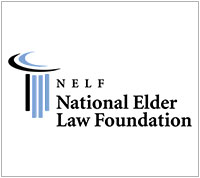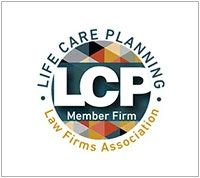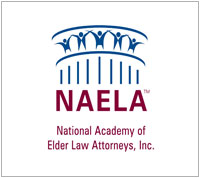Guiding Colorado Clients Through The Long-Term Care Maze
Using our signature approach – Holistic Eldercare Legal Planning (“HELP”) – our team assists Colorado families with the challenges of finding and paying for quality care while preserving assets.
Medicaid Planning And Asset Protection
Wills, Trusts And Estate Planning
Probate And Estate Administration
Elder Law And Elder Care Planning
Special Needs Planning

Thorough And Thoughtful Solutions For The Issues Of Aging And Inheritance
As you age, how will you manage and pay for the cost of long-term care? How do you ensure that your assets are protected and pass as you wish to your intended heirs?
These are the questions occupying our clients’ minds when they seek our elder care planning team here at the law firm of Vincent & Romeo, LLC. Experienced attorney Richard Vincent and our knowledgeable support staff serve clients throughout the Denver metro area as well as other Colorado communities. We are able to address all facets of estate planning, elder law, and disability law, including wills, trusts, powers of attorney, Medicaid eligibility, and probate proceedings.
Comprehensive Estate Planning And Elder Care Legal Planning In The Denver Area And Beyond

A Holistic Approach To Elder Care Planning
In addition to sound estate planning through the use of wills, trusts, powers of attorney, and advance directives, our special focus is guiding families through the long-term care maze with a unique and comprehensive approach we call Holistic Eldercare Legal Planning (HELP).
Our HELP team includes an in-house elder care coordinator (an experienced social worker) who assesses unmet care needs and assists clients with nursing home or assisted living placement and quality-of-care issues, while our lawyer addresses Medicaid qualification and other legal issues.
This system allows us to find the right facility and ensure that your loved one receives good care, while also anticipating how to pay for that care without depleting family wealth. By structuring our firm with this social work capability and A to Z approach, we eliminate the need for our clients to use multiple organizations with potentially conflicting interests and goals.
Our attorney and staff aim to alleviate the worry and stress of estate planning, nursing home planning, special needs planning, and probate duties, and to give you peace of mind about the future.
Use Our Planning Guides To Ask The Right Questions
Vincent & Romeo, LLC, has put together consumer guides on elder law issues. These comprehensive free resources will give you a foundation for your in-depth discussion with our HELP team about your specific goals and needs.
View Our Planning Guides
Medicaid Planning/Asset Preservation
Legal Considerations As We Age
Life Care Planning
Guardianship/Conservatorship
Work Directly With An Elder Law Specialist





Simplified And Convenient For You
Vincent & Romeo, LLC, has two office locations, in the Denver metro and in Boulder County, to make our services more accessible to our clients. In addition to in-person meetings, our lawyer offers the option to meet via phone or video conferencing without you having to leave your home.
Let our team answer your questions and explain to you the benefits of our Holistic Eldercare Legal Planning approach. Please call us at either of our offices to schedule an initial appointment: 303-500-5859 in Englewood or 303-720-7260 in Boulder. You can also reach our firm online. All communications are held in complete confidence.
